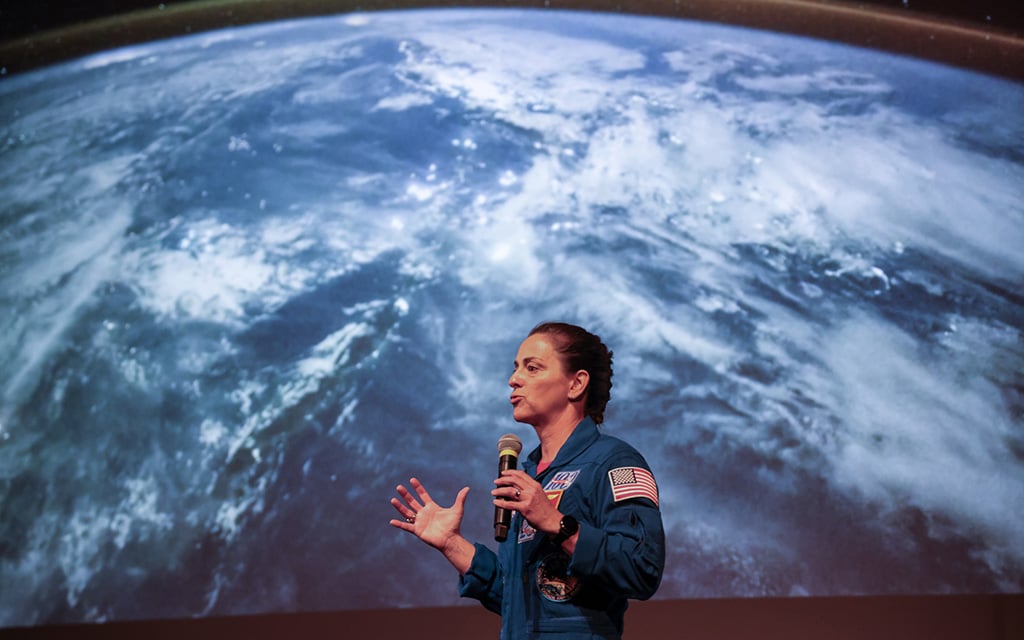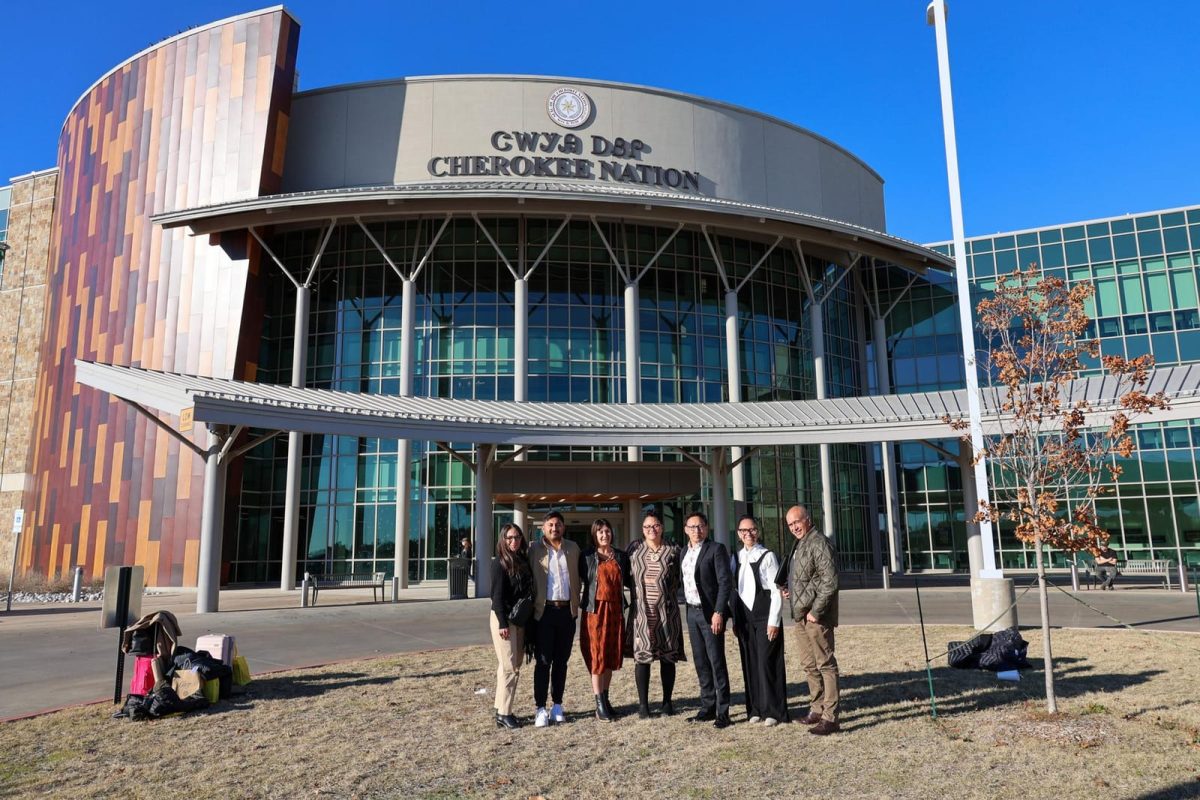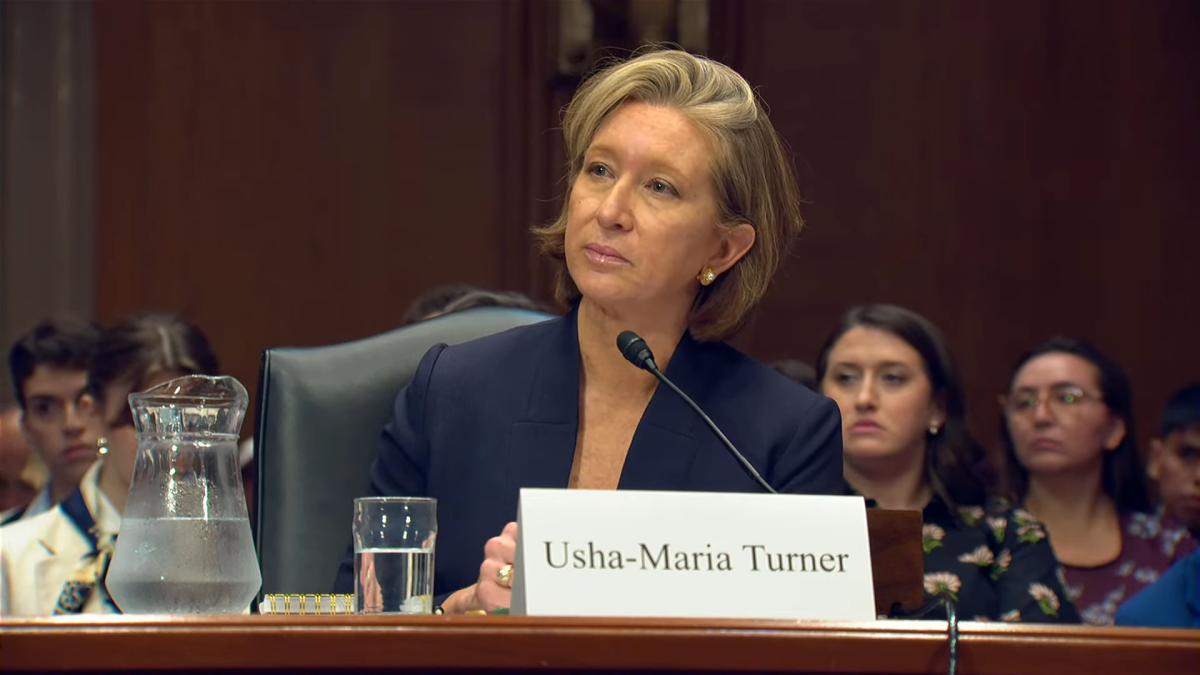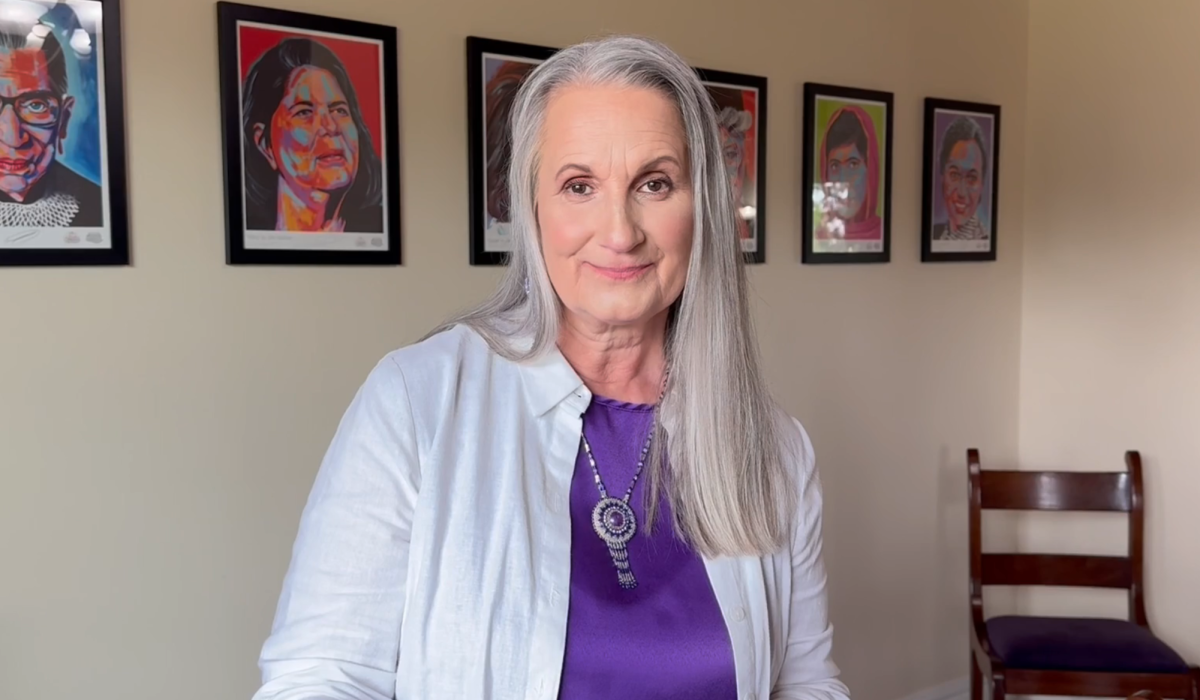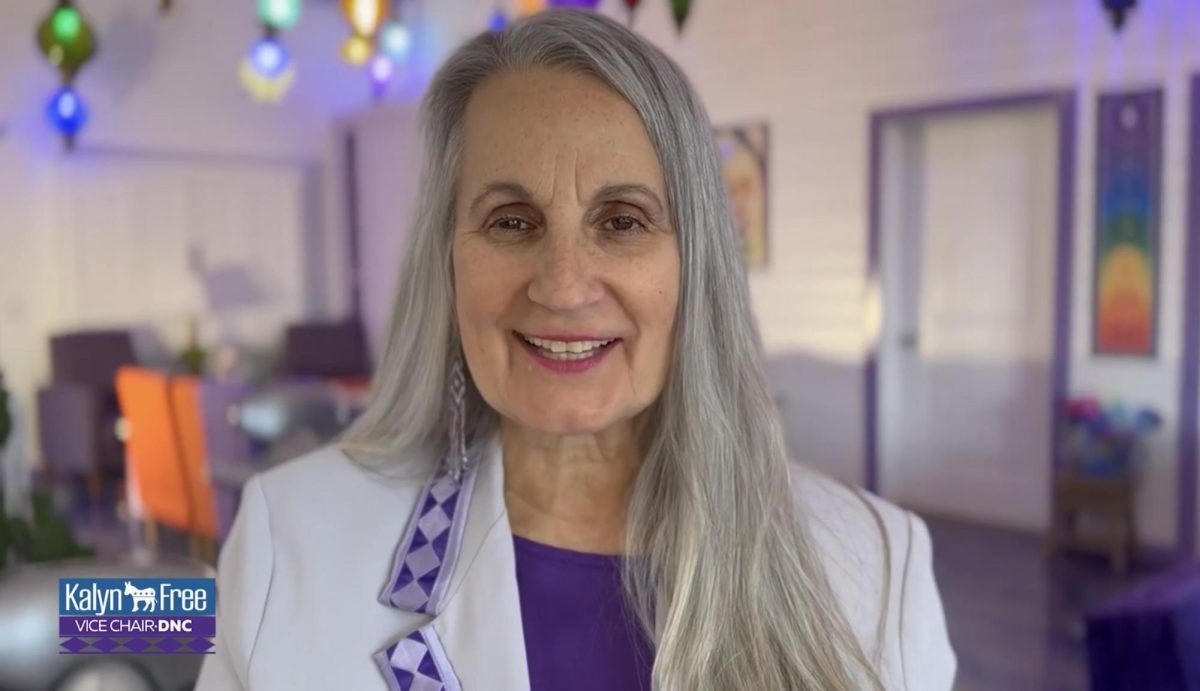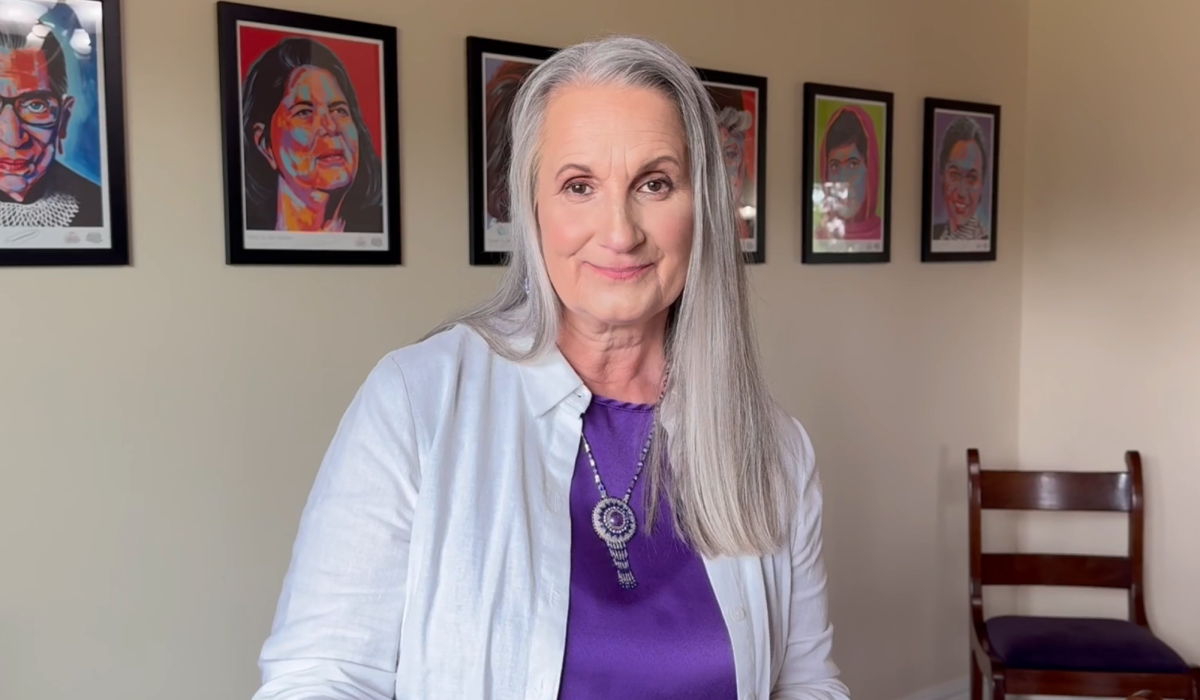AVONDALE, ARIZONA – Estrella Mountain Community College celebrated Women’s History Month by hosting an event on March 27. Marine Col. Nicole Mann, a member of the Wailacki tribe of the Round Valley Indian Tribes, was invited to speak at the event. She shared her unorthodox journey to becoming an astronaut.
Mann is the first female Indigenous astronaut and only the second Indigenous person to go to space.
Early on as a child, Mann said she knew she wanted to serve in the military but wasn’t sure which path to take.
“The idea of being an astronaut hadn’t even entered my mind at this point. I mean I had never met an astronaut before. I didn’t know exactly what they did. It seemed like something that other people did from somewhere else, right? But, it’s not something for me,” Mann said at the community college event.
At the U.S. Naval Academy, she knew early on that she wanted to be a Marine. According to her NASA profile, Mann earned her bachelor’s degree in mechanical engineering from the Naval Academy in 1999 and was commissioned as a Marine second lieutenant that same year.
In 2001, Mann earned a master’s in mechanical engineering with a specialization in fluid mechanics from Stanford University. Three years later, she began her flying career with the Thunderbolts of VMFA-251, a Marine fighter jet squadron. During this time, she flew combat missions in Iraq and Afghanistan.
“Again, I came to a crossroads though. What am I going to do next?” Mann said.
She was looking at her next set of orders and she was doing an online search for words like “fighter pilots” and “engineering” when she came across results such as “test pilot school” and “astronauts.” She then noticed bios of some current astronauts who were Marines, fighter pilots and had engineering degrees.
“And that is the first time it really dawned on me, ‘Wow! I wonder if this is something that I can do?’” Mann said.
Self doubt
After researching the career in 2009, Mann said she began her three years as a test pilot on the F/A-18 where she would push the jet and its weapons at or past their designed limits.
During this time, Mann said she got married and pregnant with her son. It was while she was pregnant that Mann saw that NASA was accepting applicants for the next astronaut class.
“I have to be honest with you, at that time I thought, ‘Well, I mean that would have been great years ago maybe, right? It was fun being a fighter pilot. It was fun being a test pilot. But now, I’m going to be a mom. It’s time for me to move on, things need to change,’” Mann said.
Mann said she remembers coming home and telling her husband about NASA selecting applicants but she wasn’t going to apply. She said her husband looked at her like she was crazy and he asked her why she shouldn’t apply and she responded “because we’re pregnant.”
“He goes, ‘Oh my God, you can never give up on this dream. If you don’t apply, then you’re never going to make it. You’re going to discount yourself. And you’re never going to know,’” Mann said.
Mann said she was doubting herself.
“I was thinking how can I be a mom and a professional, be a fighter pilot, or be an astronaut. How can I do both of these things together, at the same time?” Mann said.
Mann said she is grateful because she had her husband there to support her and tell her, “‘We’re going to figure it out. We’ll work it out.’”
In 2013, Mann was selected along with eight other members for the 21st NASA astronaut class, completing her training in 2015.
Mann launched to the International Space Station on Oct 5, 2022, as commander of NASA’s SpaceX Crew-5 mission where she spent 157 days in orbit, conducting two spacewalks and supporting two spacewalks as a robotic arm operator.
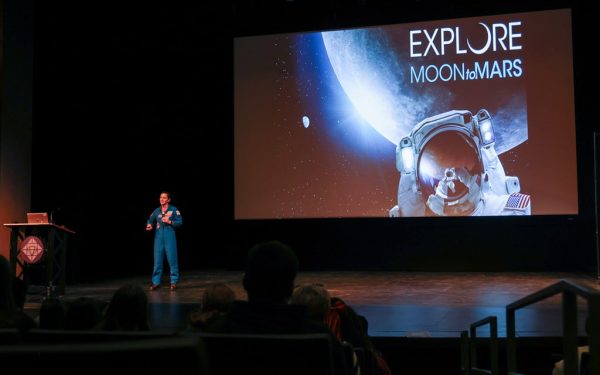
A mom and a professional
“My husband was right. You can be a mom and a professional and have a family at the same time,” Mann said.
Her testimonial of being a mother and a professional resonated with Raquel Nezzie who is a single mother, an Estrella Mountain Community College student and the vice president of the American Indian Science and Engineering Society chapter at the college.
Nezzie called it “very inspirational and motivational.”
Sharon Stefan, a math faculty member at EMCC and director of the school’s STEM Center of Excellence, said it was really important for students to hear Mann say she was not sure how her life path was going to turn out. Stefan said students who come to the community college do “not necessarily having their full life planned out, but they do have ambitions and desires and dreams just like her.”
“And to hear her share her story of this wasn’t in the plans. Like, ‘I didn’t think being an astronaut was an option for me.’ And the fact that she shared that when she found out she was pregnant and like she was going to be a mother, I think that spoke a lot to our nontraditional students that have duties like family,” Stefan said.
Cronkite News is a reporting project of the Arizona State University. Distributed by Gaylord News in partnership with Cronkite News, a reporting project Arizona State University Cronkite School of Journalism and Mass Communication.

